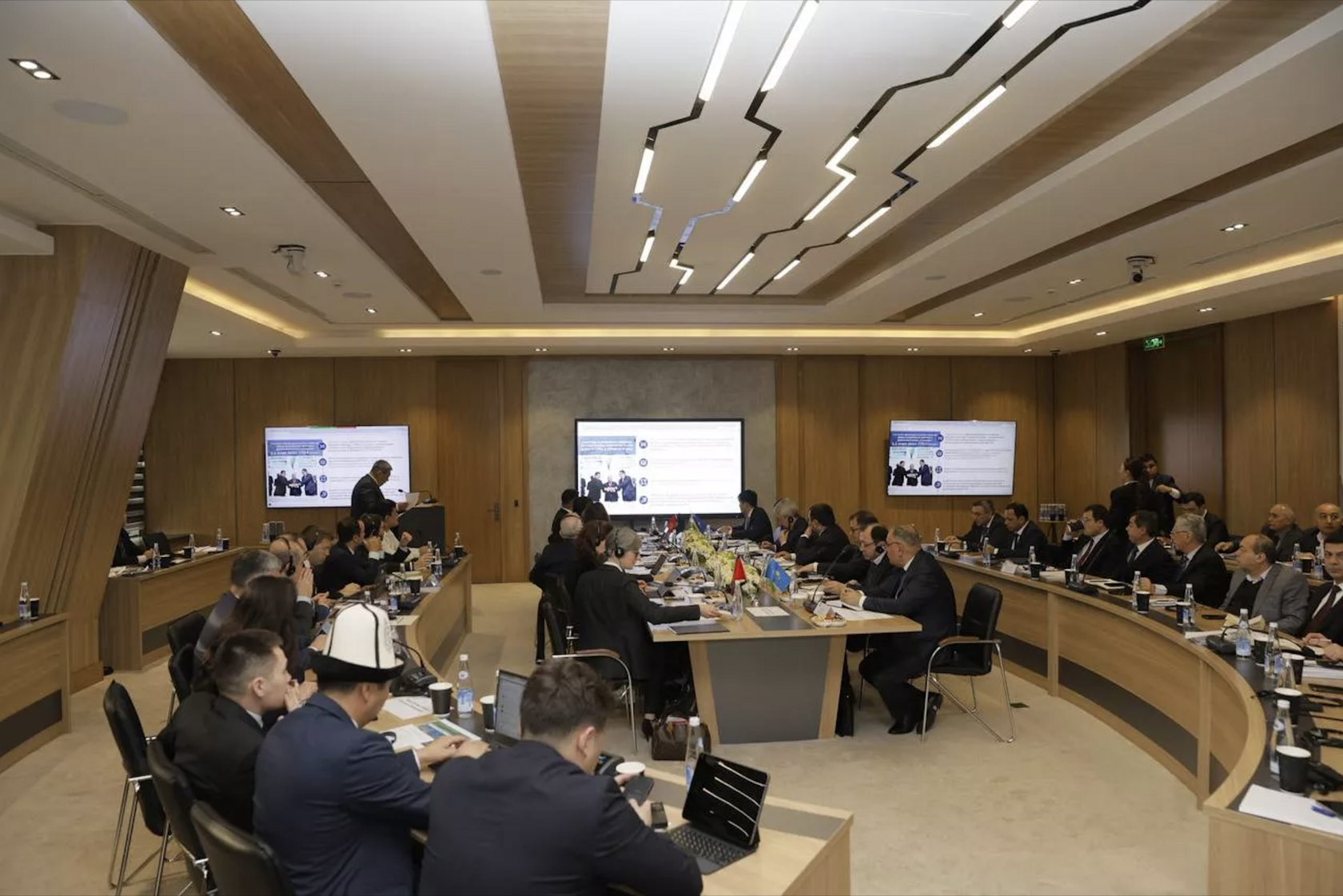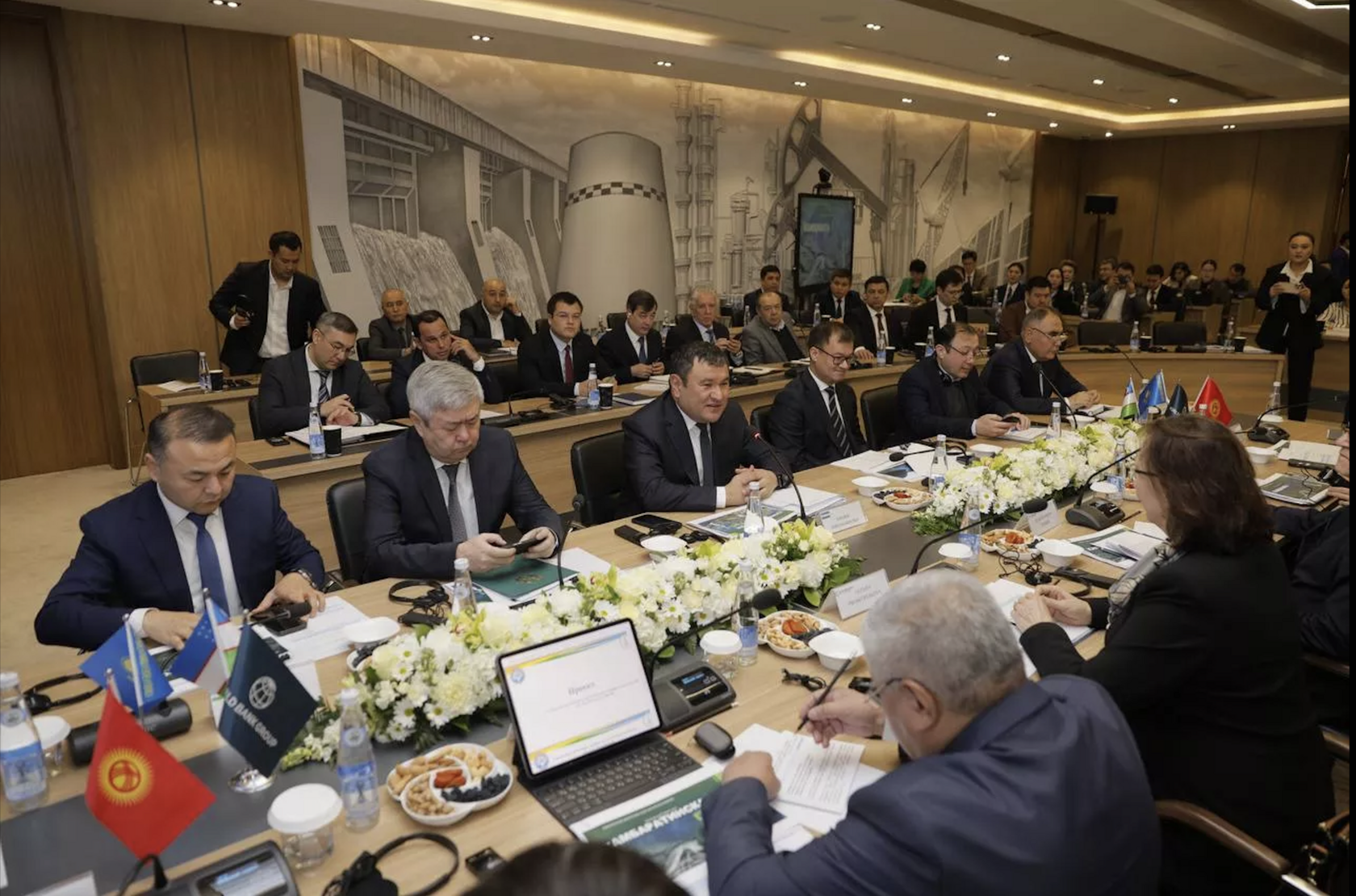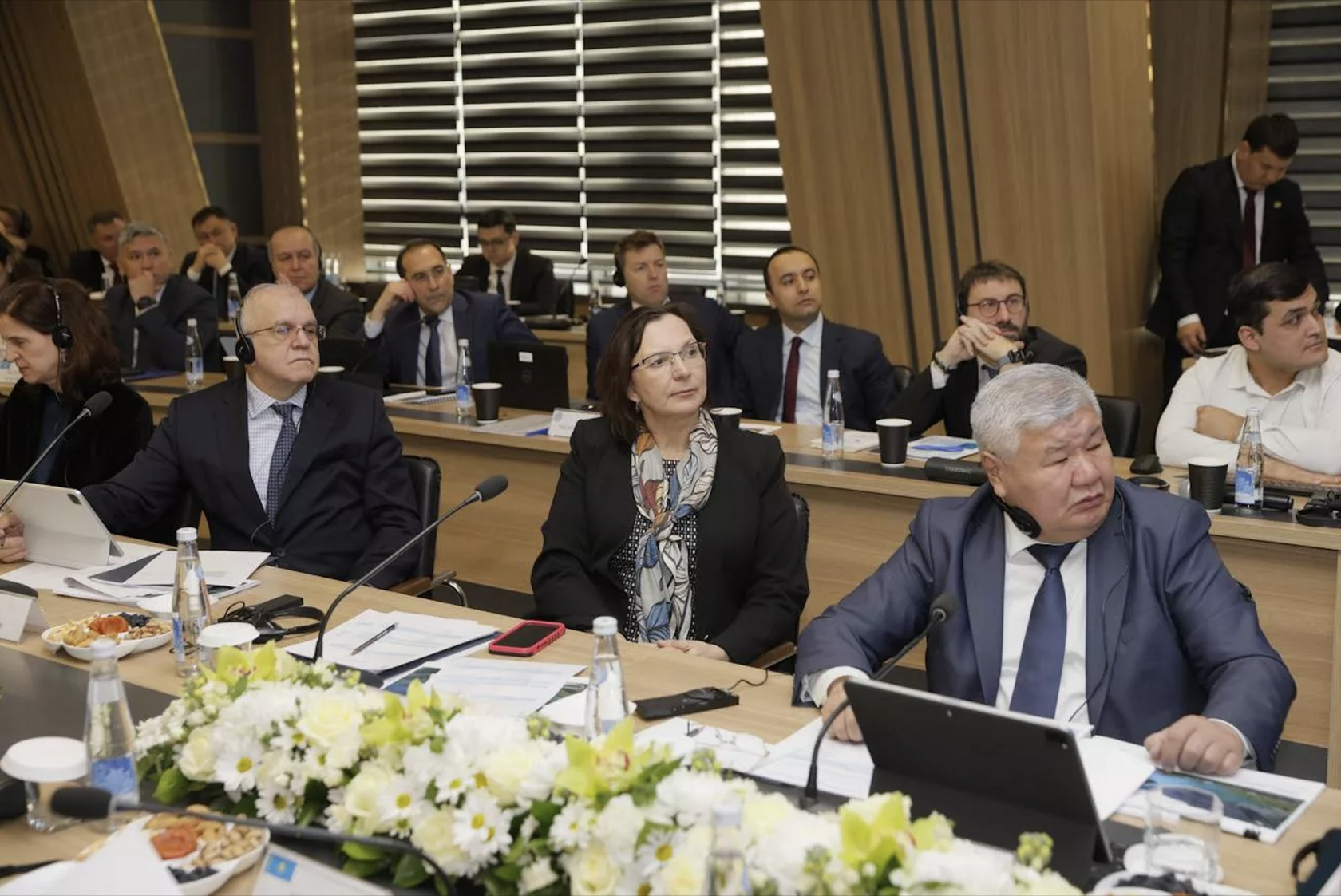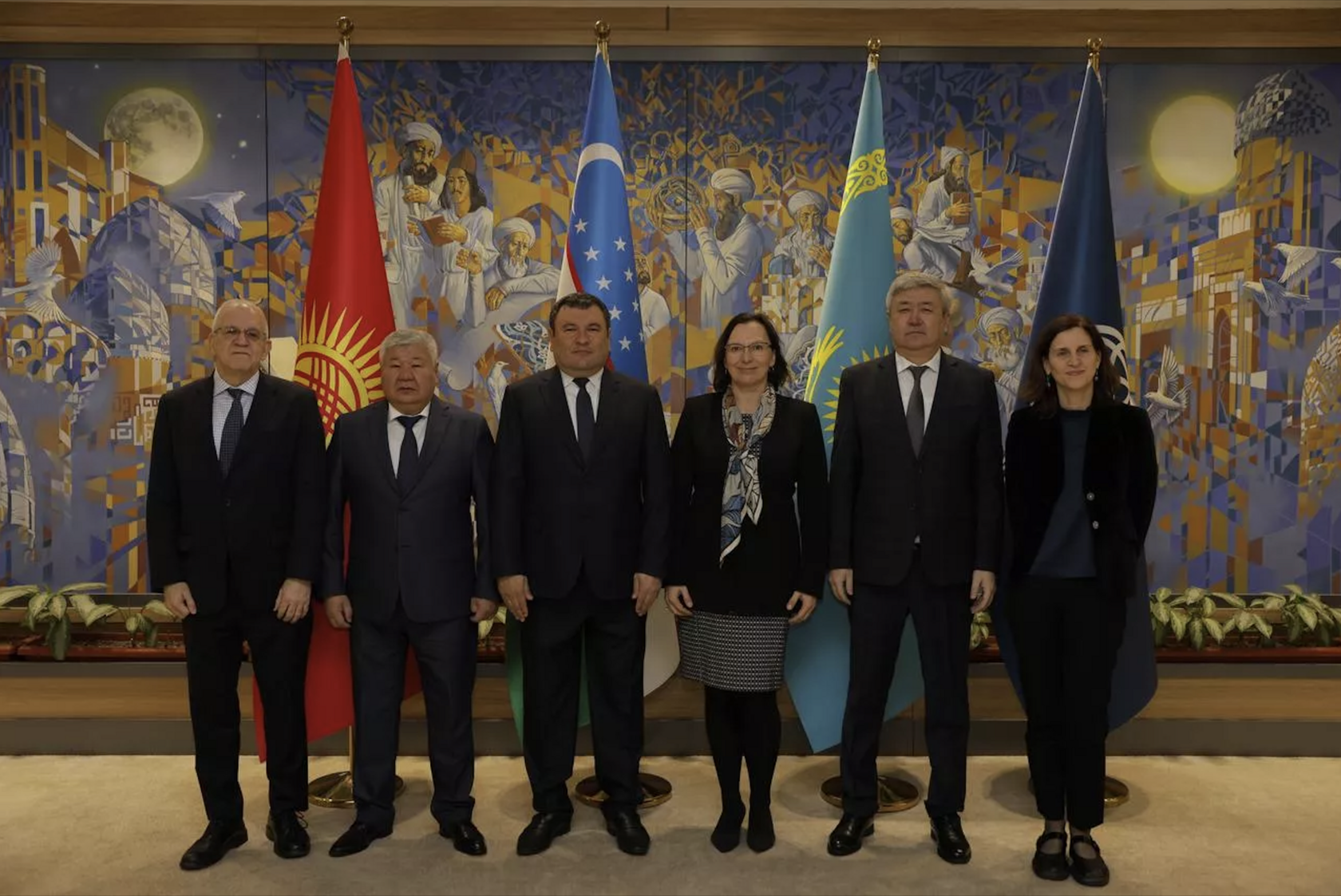On January 27, 2025, a high-level roundtable took place in Tashkent, Uzbekistan, bringing together Taalaibek Ibraev, Minister of Energy of the Kyrgyz Republic; Jurabek Mirzamakhmudov, Minister of Energy of Uzbekistan; and Sungat Esimkhanov, Deputy Minister of Energy of Kazakhstan.
The meeting was also attended by World Bank officials, including Tatiana Proskuryakova, Regional Director for Central Asia; Carolina Sanchez-Paramo, Director of Strategy and Operations for Europe and Central Asia; and Charles Cormier, Regional Director for Infrastructure in Europe and Central Asia.
The primary focus of the discussions was further development of the Kambarata-1 HPP project in the Kyrgyz Republic, a major regional initiative being jointly pursued by the three countries.
Minister of Energy of the Kyrgyz Republic Taalaibek Ibraev noted that the Kambarata-1 HPP project has garnered significant attention from international financial institutions and development partners. "In Kyrgyzstan, we refer to the Kambarata-1 HPP as the 'project of the century' due to its vast potential to strengthen regional cooperation and foster long-term development across Central Asia. Today's roundtable in Tashkent is a continuation of previous meetings held in Vienna, Brussels, and Washington in 2024, which have been crucial in coordinating efforts and accelerating the project's implementation, while also mobilizing the necessary international support," Ibraev said.
Sungat Esimkhanov, Kazakhstan's Deputy Energy Minister, emphasized the political commitment from all three countries and a shared understanding of the project's importance. "Today's roundtable is a testament to the growing regional cooperation in the water and energy sectors. I am confident that the 1,860 MW hydroelectric station on the Naryn River will become one of the largest in Central Asia and play a key role in strengthening good-neighborly relations among the countries of the region," Esimkhanov stated.
Jurabek Mirzamakhmudov, Uzbekistan's Energy Minister, welcomed the participants and reaffirmed his government's dedication to supporting this critical regional project. "We are pleased to host the Kambarata-1 HPP project participants in Tashkent for this trilateral meeting. This project is closely monitored by the leadership of our countries. We are confident it will deliver significant benefits to all Central Asian nations, boosting regional energy security, accelerating the transition to a green economy, and improving water resource management," Mirzamakhmudov said.
The three countries have sought World Bank’s assistance in the preparation and financing of the Kambarata-1 HPP project. As part of the World Bank's technical support, the Kyrgyz side is currently conducting extensive work to update the project's feasibility study, covering its technical, economic, financial, environmental, and social dimensions, alongside other essential activities for its further advancement.
Tatiana Proskuryakova, World Bank’s Regional Director for Central Asia, confirmed the Bank's commitment to supporting the efforts of the three countries: "The World Bank is ready to help ensure the region’s stable energy future, accelerate economic growth, and improve the quality of life for its citizens. We will continue providing technical assistance in the implementation of the Kambarata-1 HPP project and together with other development partners, we will work to secure the necessary financing to bring it to realization."
The meeting concluded with an agreement on the key principles for the joint development and execution of the Kambarata-1 HPP project. The parties outlined the major project milestones and approved its implementation framework. The ministers also emphasized the importance of ongoing ministerial meetings and the involvement of international development partners to ensure effective coordination and steady progress in the project’s execution.
The meeting was also attended by World Bank officials, including Tatiana Proskuryakova, Regional Director for Central Asia; Carolina Sanchez-Paramo, Director of Strategy and Operations for Europe and Central Asia; and Charles Cormier, Regional Director for Infrastructure in Europe and Central Asia.
The primary focus of the discussions was further development of the Kambarata-1 HPP project in the Kyrgyz Republic, a major regional initiative being jointly pursued by the three countries.
Minister of Energy of the Kyrgyz Republic Taalaibek Ibraev noted that the Kambarata-1 HPP project has garnered significant attention from international financial institutions and development partners. "In Kyrgyzstan, we refer to the Kambarata-1 HPP as the 'project of the century' due to its vast potential to strengthen regional cooperation and foster long-term development across Central Asia. Today's roundtable in Tashkent is a continuation of previous meetings held in Vienna, Brussels, and Washington in 2024, which have been crucial in coordinating efforts and accelerating the project's implementation, while also mobilizing the necessary international support," Ibraev said.
Sungat Esimkhanov, Kazakhstan's Deputy Energy Minister, emphasized the political commitment from all three countries and a shared understanding of the project's importance. "Today's roundtable is a testament to the growing regional cooperation in the water and energy sectors. I am confident that the 1,860 MW hydroelectric station on the Naryn River will become one of the largest in Central Asia and play a key role in strengthening good-neighborly relations among the countries of the region," Esimkhanov stated.
Jurabek Mirzamakhmudov, Uzbekistan's Energy Minister, welcomed the participants and reaffirmed his government's dedication to supporting this critical regional project. "We are pleased to host the Kambarata-1 HPP project participants in Tashkent for this trilateral meeting. This project is closely monitored by the leadership of our countries. We are confident it will deliver significant benefits to all Central Asian nations, boosting regional energy security, accelerating the transition to a green economy, and improving water resource management," Mirzamakhmudov said.
The three countries have sought World Bank’s assistance in the preparation and financing of the Kambarata-1 HPP project. As part of the World Bank's technical support, the Kyrgyz side is currently conducting extensive work to update the project's feasibility study, covering its technical, economic, financial, environmental, and social dimensions, alongside other essential activities for its further advancement.
Tatiana Proskuryakova, World Bank’s Regional Director for Central Asia, confirmed the Bank's commitment to supporting the efforts of the three countries: "The World Bank is ready to help ensure the region’s stable energy future, accelerate economic growth, and improve the quality of life for its citizens. We will continue providing technical assistance in the implementation of the Kambarata-1 HPP project and together with other development partners, we will work to secure the necessary financing to bring it to realization."
The meeting concluded with an agreement on the key principles for the joint development and execution of the Kambarata-1 HPP project. The parties outlined the major project milestones and approved its implementation framework. The ministers also emphasized the importance of ongoing ministerial meetings and the involvement of international development partners to ensure effective coordination and steady progress in the project’s execution.



